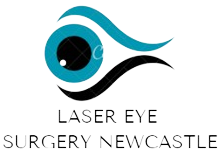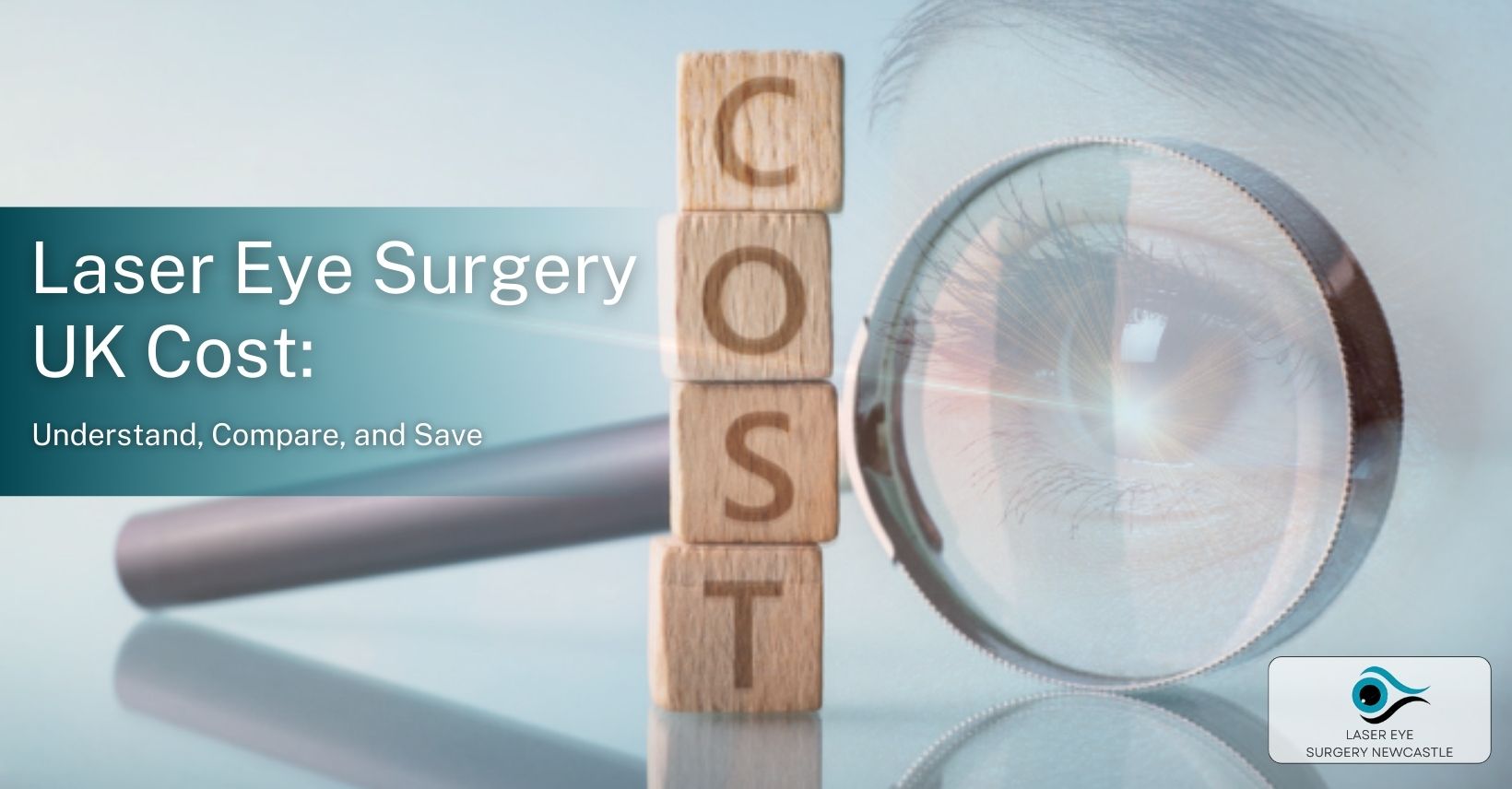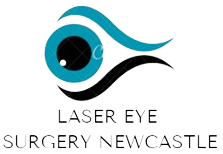Are you considering laser eye surgery in the UK but still need to decide on the financial implications?
This overview covers essential aspects, including the average cost of various laser eye surgery procedures, the elements that shape these costs, and the financial contrasts between private and public clinics.
Also, it highlights potential hidden charges, insurance considerations, and various financing options available to patients.
By analysing these topics, you can gather the necessary information to guide laser eye surgery costs.
This will empower you to make a well-informed choice while possibly minimising expenses.
This inquiry provides insights into pricing dynamics, cost-effective options, and strategies to maximise your investment in vision health.
What Is the Average Cost of Laser Eye Surgery in the UK?
Laser eye surgery costs in the UK are influenced by the type of procedure and the clinic’s reputation. They are typically between £1,195 and £3,000 per eye.
While basic procedures might be more affordable, opting for advanced technologies like wavefront-guided LASIK pushes the cost toward the higher end.
Clinics offer various packages customised to meet different budgets and needs. Renowned surgeons or specialised facilities may charge more due to their expertise and sophisticated technology.
Patients should also understand the factors contributing to these costs as they consider these variables.
What Factors Influence the Cost of Laser Eye Surgery?
Key factors affecting laser eye surgery pricing include the surgeon’s expertise, the technology employed, and the depth of the initial consultation.
Experienced surgeons with specialised training generally have higher fees due to their proven skills and successful treatment records.
Also, cutting-edge technologies like wavefront scanning, which maps the eye’s imperfections for a customised treatment plan, can elevate costs. Thorough initial consultations are pivotal in setting a precise price. They enable surgeons to assess a patient’s suitability for surgery and explain the cost breakdown, paving the way for understanding how different laser eye surgery types vary in price.
How Do Different Types of Laser Eye Surgery Affect the Cost?
The choice between types of laser eye surgery, like all-laser LASIK versus standard LASIK, greatly impacts costs. Standard LASIK, using a microkeratome blade, is less expensive compared to the femtosecond laser used in all-laser LASIK.
Despite its affordability, standard LASIK might lack the precision and customisation offered by the bladeless all-laser method, which can enhance visual outcomes and minimise complications.
Considering these factors helps patients gauge the value of investing in more advanced, albeit costly, procedures. This leads to discussions about the pricing differences between private and public clinics.
Are There Differences in Cost Between Private and Public Clinics?
Distinct cost differences exist between private and public clinics performing laser eye surgery, with private clinics usually being more expensive.
Private facilities enhance patient experience with luxurious settings and shorter wait times, reflected in their higher pricing.
In contrast, NHS clinics, while sometimes having longer wait times, offer efficient and reliable services at a lower cost.
This pricing disparity highlights the enhanced technology and superior patient care available at private clinics. Such differences in service and cost lead to inquiries about potential hidden costs in laser eye surgery pricing structures.
There are no hidden costs associated with laser eye surgery.
While many clinics strive for transparent pricing, patients may encounter unexpected costs related to aftercare, including follow-up visits, post-operative medications, or treatments for complications.
These hidden costs can greatly affect the overall financial planning for surgery. Transparency about these potential expenses is important for patients to make informed decisions and avoid surprises post-procedure. This consideration of hidden costs segues into questions about the role of insurance in covering laser eye surgery costs in the UK.
Does Insurance Cover Laser Eye Surgery in the UK?
Insurance coverage for laser eye surgery in the UK is typically limited, as it is often viewed as an elective procedure.
However, certain insurance plans, such as Bupa plans or optional extras in Aviva policies, may offer partial coverage under specific conditions.
This partial coverage can help mitigate some of the costs associated with laser eye surgery, particularly for those who meet the eligibility criteria laid out by their insurance provider. Knowing about insurance possibilities leads to queries about the NHS’s role in funding laser eye surgery.
Can You Get Laser Eye Surgery on the NHS?
Laser eye surgery through the NHS is possible but strictly limited to medically necessary cases, not elective enhancements.
Eligibility for NHS-funded surgery hinges on the severity of vision impairment and the potential quality-of-life improvements. Successfully guiding NHS criteria and consultations can result in notable financial relief for qualified patients, making the procedure accessible without the burden of high costs. This availability of NHS support prompts many to explore alternative financing options available for those not covered by the NHS.
What Financing Options Are Available for Laser Eye Surgery?
Clinics offer financing options for laser eye surgery, including interest-free credit plans and manageable monthly payments, to accommodate various financial situations.
These options enable patients to distribute the surgery costs over time, alleviating immediate financial pressure.
By providing flexible payment methods, clinics help more patients access laser eye surgery, enhancing their vision and overall quality of life. Patients evaluating these financial strategies often consider available discounts or special offers that further reduce costs.
Are There Any Discounts or Special Offers for Laser Eye Surgery?
Clinics frequently introduce discounts and special offers on laser eye surgery, such as seasonal promotions or discounts for specific groups, such as military personnel.
These incentives make the surgery more economically feasible, encouraging more individuals to opt for the procedure during promotional periods.
Such offers can greatly lower the upfront cost of surgery, making it important for potential patients to inquire about ongoing promotions when considering surgery options. Understanding these financial aspects is essential as one guides how clinics set prices for these procedures.
How Do Clinics Determine the Cost of Laser Eye Surgery?
Clinics based laser eye surgery costs on multiple factors, including procedure type, utilised technology, and surgeon expertise. Overhead expenses like facility maintenance and equipment also play a vital role in pricing.
Clinics aiming for transparency provide detailed cost breakdowns, which helps build trust and inform patient decisions. Customising treatment plans to individual needs can affect pricing, ensuring patients receive care that aligns with their vision goals. As we analyse cost considerations, it’s also vital to understand how a clinic’s reputation influences its pricing strategies.
How Does the Reputation of a Clinic Impact the Cost of Surgery?
A clinic’s reputation significantly influences its laser eye surgery pricing, with well-regarded clinics often charging more for their proven quality and reliability.
Positive patient reviews and testimonials contribute to a clinic’s demand, allowing them to command higher prices. Conversely, clinics with lesser-known reputations might offer more competitive rates to attract patients.
Comprehending these dynamics is important for patients comparing surgery prices, as it helps them assess the value offered by different clinics based on reputation and cost-effectiveness.
What Should I Consider When Comparing Laser Eye Surgery Prices?
When comparing laser eye surgery prices, it is important to consider the cost, quality of care, consultation thoroughness, and the clinic’s reputation.
Research Different Clinics
Researching different clinics, especially those in London, can help you find the most suitable option for your laser eye surgery needs.
When evaluating clinics, it’s important to examine the technology they use for procedures. State-of-the-art equipment can lead to better precision and outcomes.
Assessing the surgeons’ qualifications is essential. Confirm that they are board-certified and have extensive experience performing laser eye surgeries.
Checking the customer satisfaction rates is a reliable way to gauge the quality of service provided. Reading reviews and testimonials from previous patients can offer valuable insights into the overall experience at the clinic.
Read Reviews and Testimonials
Reviewing and customer testimonials can provide valuable insights into the quality of service and patient satisfaction at various laser eye surgery clinics.
When considering a laser eye surgery clinic, it’s essential to look at a range of positive and negative reviews to get a well-rounded understanding of the clinic’s reputation and performance.
Positive reviews can highlight a clinic’s strengths and successes, while negative reviews can point out potential weaknesses or areas for improvement.
On the other hand, customer testimonials offer firsthand accounts of experiences from individuals who have undergone treatment at the clinic. These testimonials can give you a glimpse into the clinic’s reliability, expertise, and success rates from the viewpoint of actual patients.
Ask for Quotes and Consultations
Asking for detailed quotes and scheduling consultations with multiple clinics can help you better understand the cost and what is included in the laser eye surgery package.
When requesting quotes, be sure to enquire about the specific procedures that are part of the package and any additional services or post-surgery care included. It’s important to understand the breakdown of costs, such as surgeon fees, facility fees, and any potential extra charges.
During consultations, ask about the surgeons’ experience and qualifications, the type of technology used, and the clinic’s success rate. Enquire about potential risks and complications and the pre-and post-operative instructions.
After receiving quotes and consultation information from each clinic, carefully compare the detailed cost breakdowns. Look for transparency in pricing and any hidden costs, and ensure all aspects of your treatment are covered.
Making an Informed Decision: Summary and Next Steps
Making an informed decision about laser eye surgery involves understanding the treatment options available, weighing the risks and benefits, and considering the procedure’s affordability.
After thoroughly researching laser eye surgery options, it is important to consult with reputable clinics like Optimal Vision to gather more insights. Optimal Vision and other leading centres provide comprehensive consultations, personalised treatment plans, and experienced professionals to guide patients throughout their journey.
Prospective patients can schedule a consultation to address their concerns, clarify doubts, and learn about the latest advancements in laser eye surgery technology. Booking a consultation is the first step towards achieving a clearer vision and a brighter future.






